| Although Wednesbury is well known for the production of
tube and tube-fittings, it also had several manufacturers
who specialised in the production of cast iron gas, steam,
and water main cocks. One of the earliest, and the longest
surviving producer was Richard Garbett, based at Monway Gas,
Water, and Steam Cock Manufactory, 64 Portway Road,
Wednesbury. |
| Richard Garbett and his
descendants were, and still are, extremely skilled
engineers. Richard's skill
and fine workmanship can be appreciated by looking at the working model of a
steam engine, opposite, that was built by him in 1865.
|
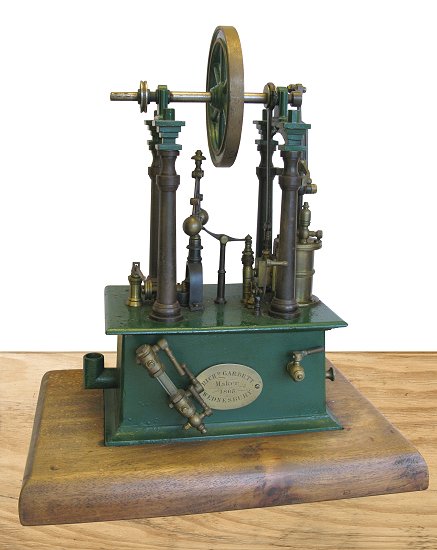 |
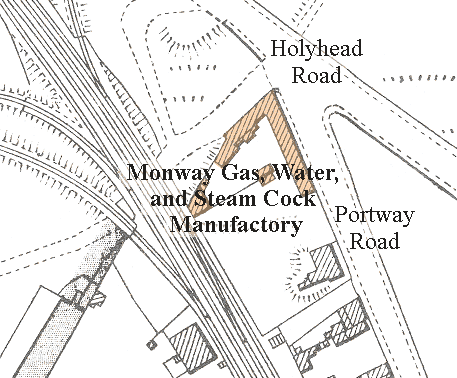
The location of Richard Garbett's
factory, at the northern end of Portway Road, by its
junction with Holyhead Road. |
Unfortunately little is known about the company, which
was founded by Richard Garbett in 1872. The business
remained in family hands until the end. When Richard Garbett
retired, his nephew John Thomas Garbett took over, followed
in turn by his three sons, Frank, Harry, and Sidney.
They were ably assisted by other family members including
Doug Garbett, Leonard Garbett, Jackie Garbett, and Alf
Arnold.
Thanks to the family's hard work, the business survived
for over one hundred years, producing a wide range of cast
iron gas, water, and steam cocks of all sizes. It closed in
the early 1980s. |
| It must have been a happy place to work. The employees
were very loyal, most of them staying there for much of
their working lives. |

An impression of how the factory looked, as
seen from the eastern side of Portway Road.
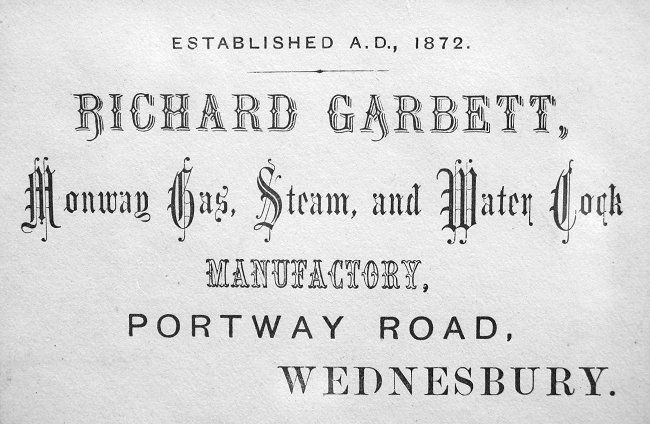
An old business card.
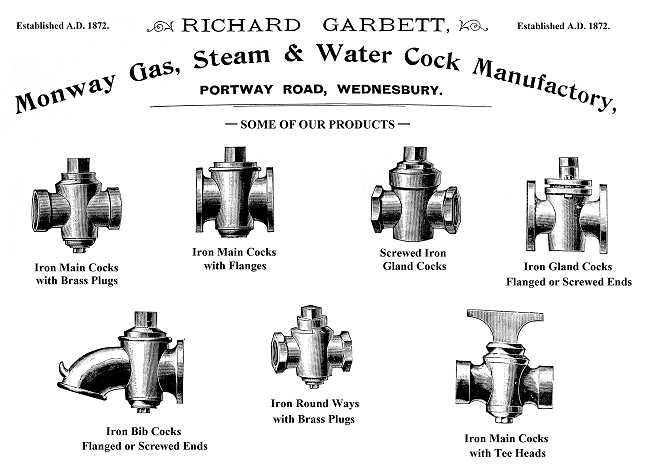
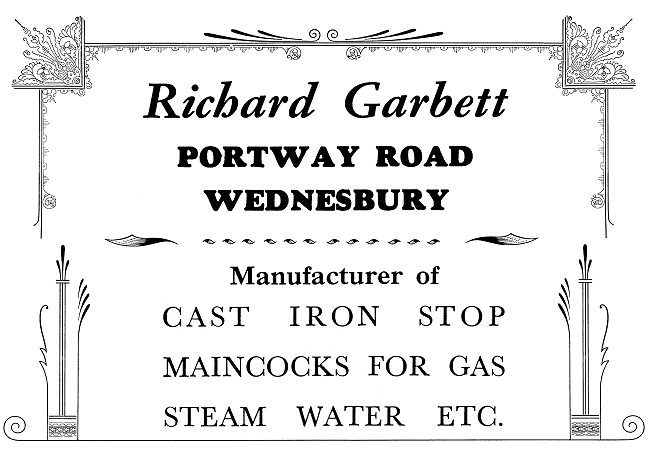
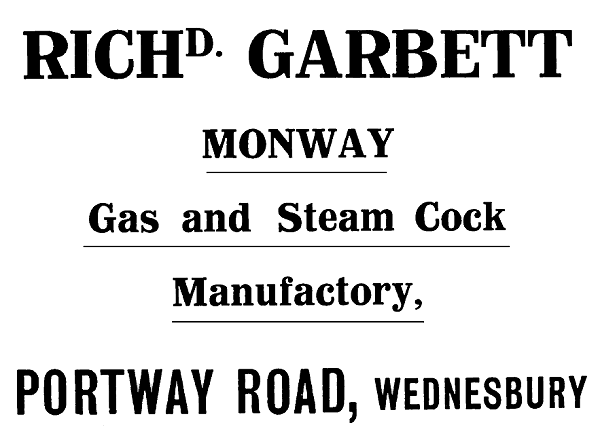
An advert from 1918.
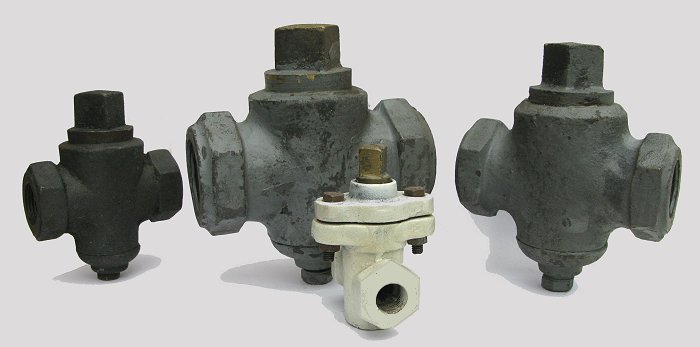
A range of Garbett's iron main cocks with
brass plugs.
|
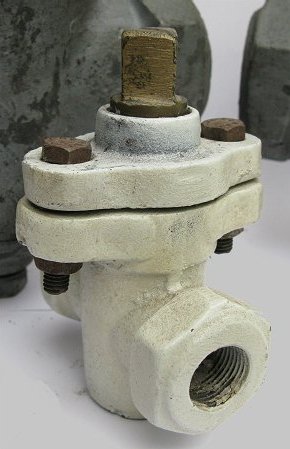
A small cast iron main cock. |
|
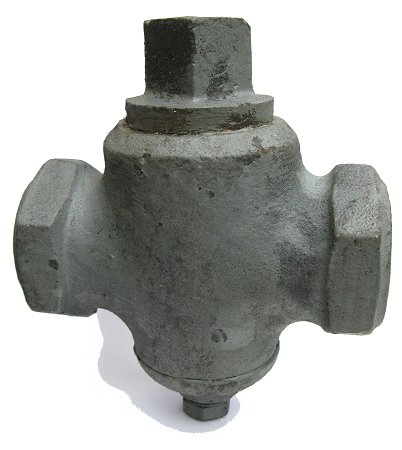
A much larger version. |
|
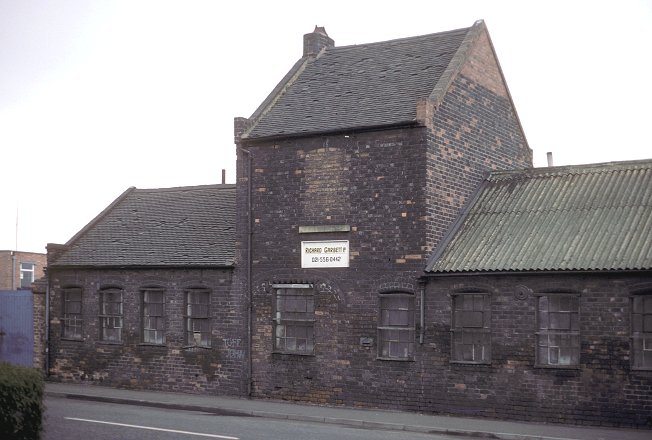
The front of the factory. Courtesy of Ian S.
Bolton.
| The following photographs are stills from a video film made
on an early camcorder, by Tony and Pauline Highfield, just
after the factory closed. |
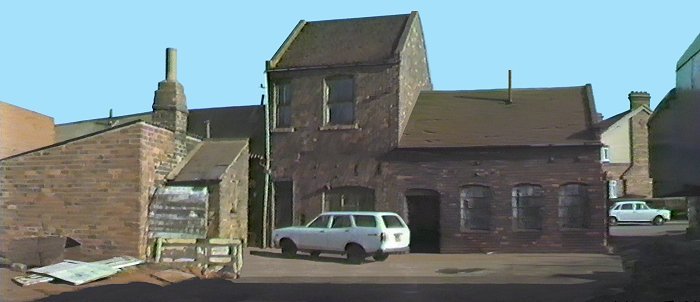
The factory yard showing the back
of the main building with the office upstairs, and the
gateway into Portway Road. |
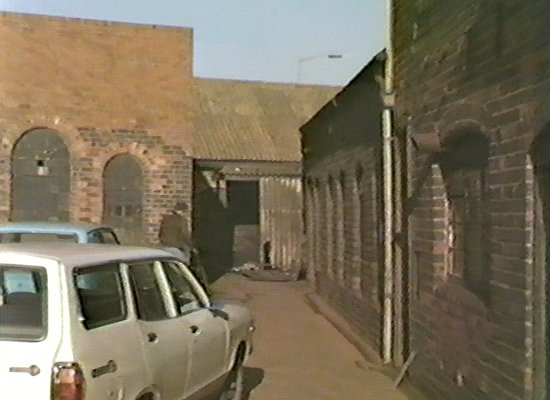 |
Another view from the yard looking
along the back wall of the main building. |
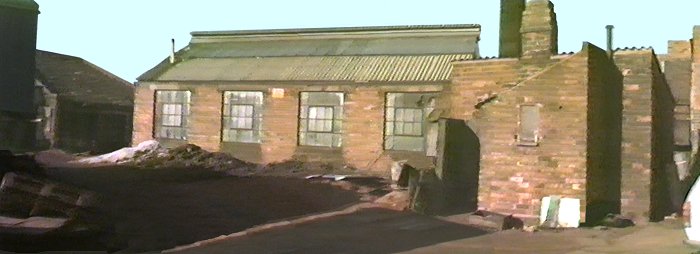
The buildings at the northern end of the yard,
with the furnace in the background.
|
The cupola furnace that produced the
iron for the foundry. There
was also a brass foundry which produced the castings for the
plugs that were used in the cocks. |
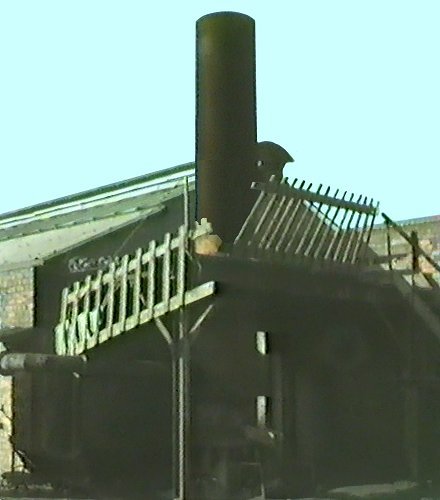 |
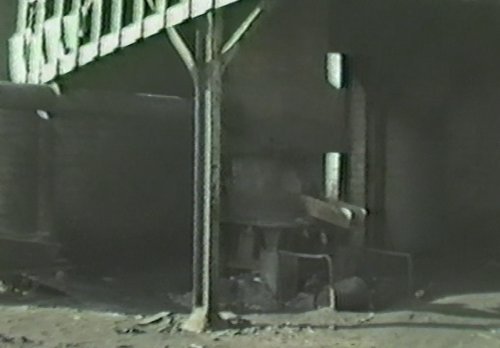 |
A close-up view of the bottom of
the furnace. |
| The building in the western corner
of the yard that was originally a stables. |
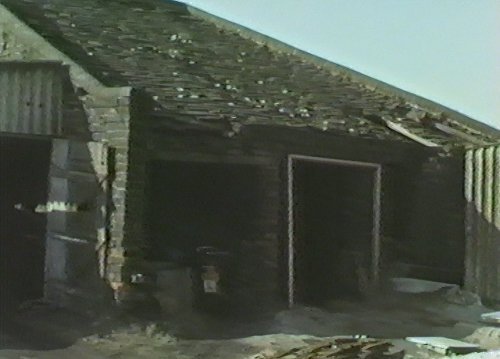 |
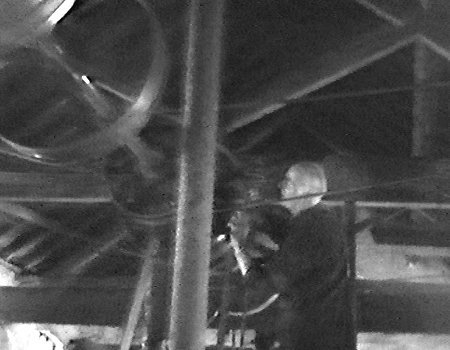 |
The machinery in the factory was
driven by overhead line shafting. In this photograph Doug
Garbett sorts out a belt that has come off the pulley.
|
| One of the grindstones in the sand
mill, which prepared the sand for the foundry. |
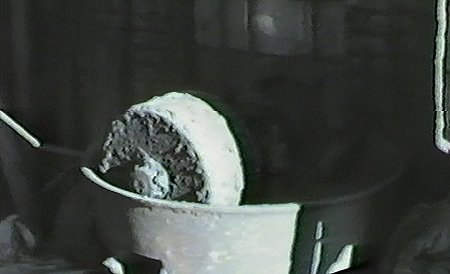 |
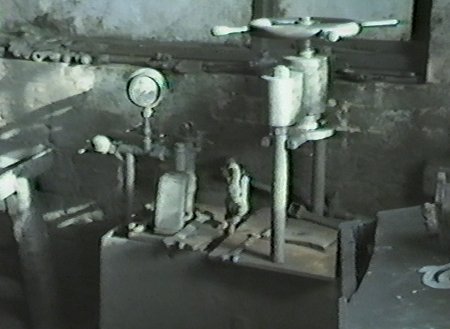 |
The hydraulic testing machine that
pressure-tested the completed cocks. |
| A batch of finished cast iron main
cocks in the warehouse. |
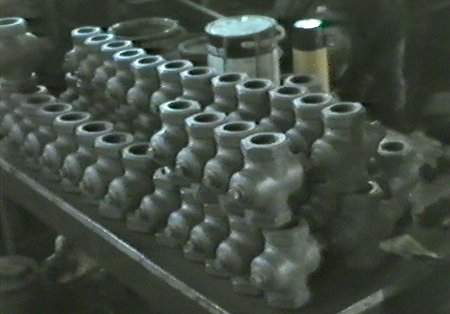 |
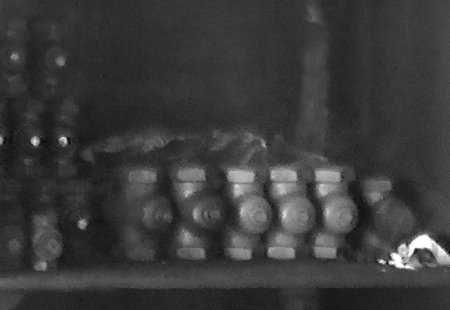 |
A view of some of the cast iron
cocks that were on the shelves in the warehouse. |
| Another view of finished products
in the warehouse. |
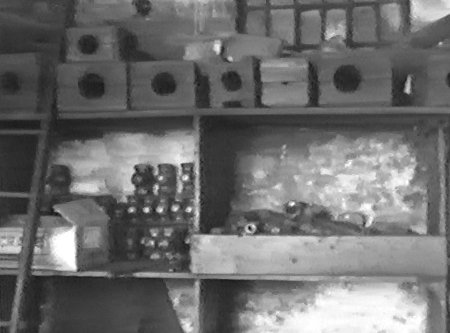 |
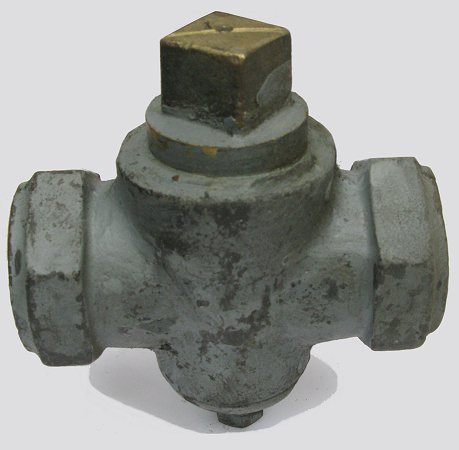 |
A large cast iron main cock with a
brass plug. |
| Another view of the cast iron main
cock. |
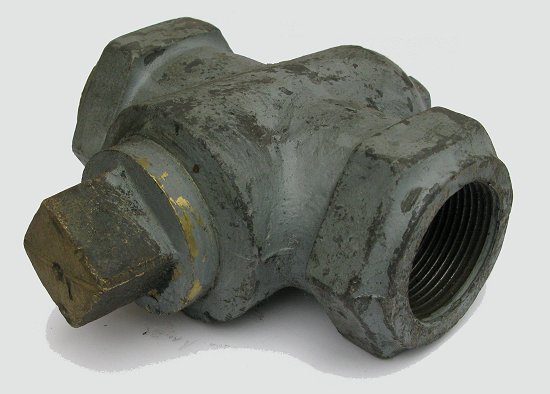 |
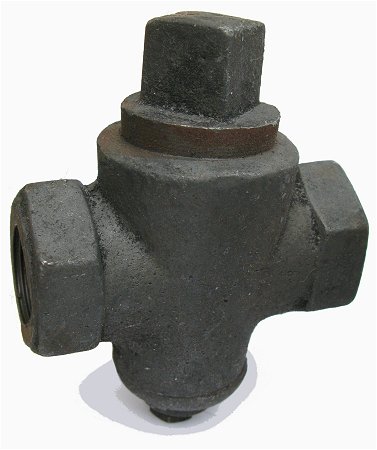 |
A slightly smaller cast iron main
cock. |
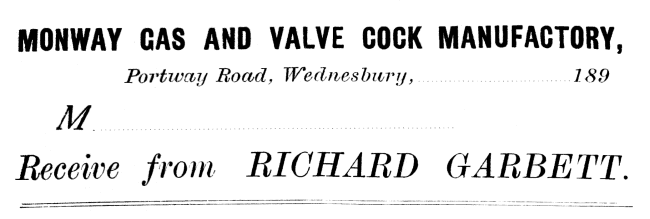
The top of a receipt from the 1890s.
After closure, much of the machinery was generously
donated to the Black Country Living Museum. If anyone has
any information about the firm, please
send me an email. I
will be delighted to hear from you.
I would like to thank Tony and Pauline Highfield, and
Richard W. Garbett for their help in producing this section. |
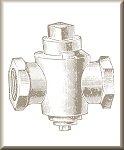 |
Return to
the
previous page |
|